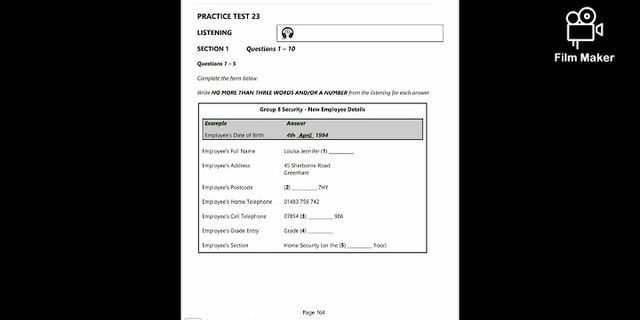Listening is one of the most important skills you can have. How well you listen has a major impact on your job effectiveness, and on the quality of your relationships with others. Show For instance:
Given all the listening that we do, you would think we'd be good at it! In fact, most of us are not, and research suggests that we only remember between 25 percent and 50 percent of what we hear, as described by Edgar Dale's Cone of Experience. That means that when you talk to your boss, colleagues, customers, or spouse for 10 minutes, they pay attention to less than half of the conversation. Turn it around and it reveals that when you are receiving directions or being presented with information, you aren't hearing the whole message either. You hope the important parts are captured in your 25-50 percent, but what if they're not? Clearly, listening is a skill that we can all benefit from improving. By becoming a better listener, you can improve your productivity, as well as your ability to influence, persuade and negotiate. What's more, you'll avoid conflict and misunderstandings. All of these are necessary for workplace success! Click here to view a transcript of this video.
Good communication skills require a high level of self-awareness. Understanding your own personal style of communicating will go a long way toward helping you to create good and lasting impressions with others. About Active ListeningThe way to improve your listening skills is to practice "active listening." This is where you make a conscious effort to hear not only the words that another person is saying but, more importantly, the complete message being communicated. In order to do this you must pay attention to the other person very carefully. You cannot allow yourself to become distracted by whatever else may be going on around you, or by forming counter arguments while the other person is still speaking. Nor can you allow yourself to get bored, and lose focus on what the other person is saying.
If you're finding it particularly difficult to concentrate on what someone is saying, try repeating their words mentally as they say them. This will reinforce their message and help you to stay focused. To enhance your listening skills, you need to let the other person know that you are listening to what they're saying. To understand the importance of this, ask yourself if you've ever been engaged in a conversation when you wondered if the other person was listening to what you were saying. You wonder if your message is getting across, or if it's even worthwhile continuing to speak. It feels like talking to a brick wall and it's something you want to avoid.
Acknowledgement can be something as simple as a nod of the head or a simple "uh huh." You aren't necessarily agreeing with the person, you are simply indicating that you are listening. Using body language and other signs to acknowledge you are listening can also help you to pay attention. Try to respond to the speaker in a way that will encourage them to continue speaking, so that you can get the information that you need. While nodding and "uh huhing" says you're interested, an occasional question or comment to recap what has been said also communicates that you are listening and understanding his message.
Be aware that active listening can give others the impression that you agree with them even if you don't. It’s also important to avoid using active listening as a checklist of actions to follow, rather than really listening. It may help to practice Mindful Listening if you find that you lose focus regularly. Becoming an Active ListenerThere are five key active listening techniques you can use to help you become a more effective listener: 1. Pay AttentionGive the speaker your undivided attention, and acknowledge the message. Recognize that non-verbal communication also "speaks" loudly.
2. Show That You're ListeningUse your own body language and gestures to show that you are engaged.
3. Provide FeedbackOur personal filters, assumptions, judgments, and beliefs can distort what we hear. As a listener, your role is to understand what is being said. This may require you to reflect on what is being said and to ask questions.
If you find yourself responding emotionally to what someone said, say so. And ask for more information: "I may not be understanding you correctly, and I find myself taking what you said personally. What I thought you just said is XXX. Is that what you meant?" 4. Defer JudgmentInterrupting is a waste of time. It frustrates the speaker and limits full understanding of the message.
5. Respond AppropriatelyActive listening is designed to encourage respect and understanding. You are gaining information and perspective. You add nothing by attacking the speaker or otherwise putting her down.
InfographicClick on the thumbnail image below to see Active Listening represented in an infographic: 
Key Points It takes a lot of concentration and determination to be an active listener. Old habits are hard to break, and if your listening skills are as bad as many people's are, then you'll need to do a lot of work to break these bad habits. There are five key techniques you can use to develop your active listening skills:
Start using active listening techniques today to become a better communicator, improve your workplace productivity, and develop better relationships.
As a new English speaker, your language skills are progressing well -- grammar is now familiar, your reading comprehension is no problem, and you are communicating quite fluently -- but listening is still posing a problem. First of all, remember that you are not alone. Listening comprehension is probably the most difficult task for almost all learners of English as a foreign language. The most important thing is to listen, and that means as often as possible. The next step is to find listening resources. This is where the Internet really comes in handy (idiom = to be useful) as a tool for English students. A few suggestions for interesting listening selections are CBC Podcasts, All Things Considered (on NPR), and the BBC. Once you have begun to listen on a regular basis, you might still be frustrated by your limited understanding. Here are a few courses of action you can take:
First, translating creates a barrier between the listener and the speaker. Second, most people repeat themselves constantly. By remaining calm, you can usually understand what the speaker had said. While you are listening to another person speaking a foreign language (English in this case), the temptation is to immediately translate into your native language. This temptation becomes much stronger when you hear a word you don't understand. This is only natural as we want to understand everything that is said. However, when you translate into your native language, you are taking the focus of your attention away from the speaker and concentrating on the translation process taking place in your brain. This would be fine if you could put the speaker on hold. In real life, however, the person continues talking while you translate. This situation obviously leads to less -- not more -- understanding. Translation leads to a mental block in your brain, which sometimes doesn't allow you to understand anything at all. Think for a moment about your friends, family, and colleagues. When they speak in your native tongue, do they repeat themselves? If they are like most people, they probably do. That means that whenever you listen to someone speaking, it is very likely that they will repeat the information, giving you a second, third or even fourth chance to understand what has been said. By remaining calm, allowing yourself to not understand, and not translating while listening, your brain is free to concentrate on the most important thing: understanding English in English. Probably the greatest advantage of using the Internet to improve your listening skills is that you can choose what you would like to listen to and how many and times you would like to listen to it. By listening to something you enjoy, you are also likely to know a lot more of the vocabulary required. Use keywords or key phrases to help you understand the general ideas. If you understand "New York", "business trip", "last year" you can assume that the person is speaking about a business trip to New York last year. This may seem obvious to you, but remember that understanding the main idea will help you to understand the detail as the person continues to speak. Let's imagine that your English speaking friend says, "I bought this great tuner at JR's. It was really cheap and now I can finally listen to National Public Radio broadcasts." You don't understand what a tuner is, and if you focus on the word tuner you might become frustrated. If you think in context, you probably will begin to understand. For example; bought is the past of buy, listen is no problem and radio is obvious. Now you understand: He bought something -- the tuner -- to listen to the radio. A tuner must be a kind of radio. This is a simple example but it demonstrates what you need to focus on: Not the word that you don't understand, but the words you do understand. Listening often is the most important way to improve your listening skills. Enjoy the listening possibilities offered by the Internet and remember to relax. |




















